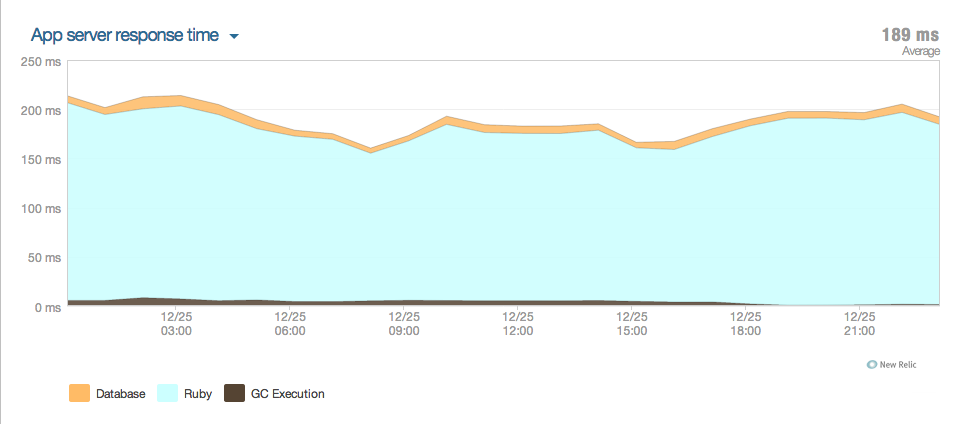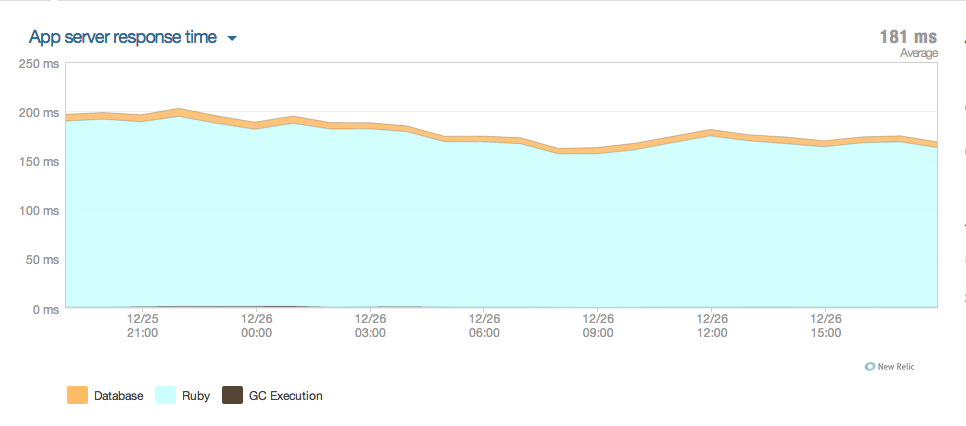Ruby 2.1.0 was released about 2 weeks ago, and after seeing a notable speed performance improvement with my Rails app when going from 1.9.3 to 2.0.0 I was excited to see if the same would happen with Ruby 2.1.0.
I quickly ran another set of very casual tests, mainly running test suites and noting startup times of rails commands and rake tasks at the command line. What I saw was a 20% improvement in those tasks. Nothing to sneeze at …
Excited, I rushed to upgrade my tiny Rails app to ruby 2.1.0 and after doing it I tracked the difference in New Relic
This was my result (deployment happened about 18:00 on December 25th, app is setup to run with one puma worker and 8-16 threads proxied to nginx)
 As you can see, there wasn’t much of an improvement in performance at all. In fact here is the graph after a full day of running in the wild.
As you can see, there wasn’t much of an improvement in performance at all. In fact here is the graph after a full day of running in the wild.
So while you might get better startup times on Rails tasks, you probably won’t see too much of a speed boost on your servers.
Improved GC
What I found interesting, though, is the improved garbage collection. The brown part of the graph (GC execution) almost completely disappears in ruby 2.1.0. And its no wonder, a lot of work went into improving Garbage collection in ruby 2.1.0
The garbage collector in Ruby 2.1 implements a form of generational garbage collection, with Ruby calling their implementation RGenGC (Restricted Generational Garbage Collection). This replaces the “Mark & Sweep” implementation used in previous versions of Ruby
…
Using RGenGC provides high compatibility with existing extensions while still bringing performance improvements. Popular objects Array, String, Hash, Object, and Numeric are Write-Barrier protected, thus able to take advantage of the RGenGC system
The moral of the story? Ruby 2.1.0 has a small performance boost over Ruby 2.0 and upgrading to it should give you a bit of a boost with your Rails app, more if its a pretty big app with non-trivial time spent doing GC.
PS: Brian Hempel has created an awesome site that benchmarks ruby versions using Rails. His results are in line with what I found
PS2: Sorry there wasn’t actually a T-shirt, I just liked the title
